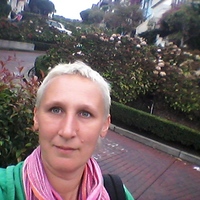
Dorota Hall
Dorota Hall, PhD, is a cultural anthropologist and sociologist, an associate professor at the Institute of Philosophy and Sociology, Polish Academy of Sciences, and the president of the International Study of Religion in Eastern and Central Europe Association (ISORECEA). At the beginning of 2000s, she dealt with new spiritualties, and in 2007 published a book, "New Age in Poland: The local dimension of the global phenomenon" (in Polish). Afterwards, she moved to studies of religion and sexualities, and in 2016 published a book, "Searching for a Place: LGBT Christians in Poland" (in Polish). She has published papers in academic journals, e.g., Social Compass, Anthropological Journal of European Cultures, European Societies. Apart from that, she takes part in various expert networks: in 2009–2012, she was a member of the Network of Socio-economic Experts in the Anti-discrimination Field (SEN) established by the European Commission, and since 2011, she has been the Polish expert on field research within the FRANET network established by the EU Agency for Fundamental Rights.
Address: Institute of Philosophy and Sociology
Polish Academy of Sciences
Nowy Świat 72
00-330 Warsaw
Poland
Address: Institute of Philosophy and Sociology
Polish Academy of Sciences
Nowy Świat 72
00-330 Warsaw
Poland
less
Uploads
Papers by Dorota Hall
The article addresses the issue of personal attitudes of those conducting social studies on religion towards the subject of their academic interest. It focuses on self-reflexivity in sociology of religion and critically discusses the recommendations for reflection on researchers' situatedness presented by Neitz as well as Altglas and Wood. These recommendations correspond to the recent calls for a stronger embeddedness of sociology of religion in social theory and the issue of power relations. However, they inadequatly address the contemporary debate on epistemology and methodology of social sciences, which destabilizes identities, points to the political and ethical entanglement of academic activity and draws attention to the relational nature of knowledge production. The article encourages further reflection on the issue of situatedness in sociological studies of religion. Within studies conducted in Poland, such reflection could strengthen the analytical currents aimed at breaking with the research practice called "methodological Catholicism".
The article focuses on how discourses about homosexuality penetrate the personal experience of those aware of their homoerotic desire. It discusses the experience of men who undertook priestly formation, later departed from the seminary studies, and today declare themselves as homo- or bisexual, the majority as Roman Catholics. It shows that at the threshold and during the formation, these men were influenced by the ideas about homosexuality promoted not only within the Roman Catholic Church, but also in the wider discursive space - and those have dynamically changed in Poland of the last decades. Correspondingly, the sexuality-related self-understanding of the study participants came into various, specific to a given historical moment, relationships with their vocation.
The article addresses the issue of personal attitudes of those conducting social studies on religion towards the subject of their academic interest. It focuses on self-reflexivity in sociology of religion and critically discusses the recommendations for reflection on researchers' situatedness presented by Neitz as well as Altglas and Wood. These recommendations correspond to the recent calls for a stronger embeddedness of sociology of religion in social theory and the issue of power relations. However, they inadequatly address the contemporary debate on epistemology and methodology of social sciences, which destabilizes identities, points to the political and ethical entanglement of academic activity and draws attention to the relational nature of knowledge production. The article encourages further reflection on the issue of situatedness in sociological studies of religion. Within studies conducted in Poland, such reflection could strengthen the analytical currents aimed at breaking with the research practice called "methodological Catholicism".
The article focuses on how discourses about homosexuality penetrate the personal experience of those aware of their homoerotic desire. It discusses the experience of men who undertook priestly formation, later departed from the seminary studies, and today declare themselves as homo- or bisexual, the majority as Roman Catholics. It shows that at the threshold and during the formation, these men were influenced by the ideas about homosexuality promoted not only within the Roman Catholic Church, but also in the wider discursive space - and those have dynamically changed in Poland of the last decades. Correspondingly, the sexuality-related self-understanding of the study participants came into various, specific to a given historical moment, relationships with their vocation.
Based on the analyses of media practices, media content, and interview material, the study develops the new concept of media settlers, which pertains to religious organizations that use their media to fulfill their own aims: expand, assert their authority, and maintain their communities. They do so through five key media practices, which can be defined as strategies: acknowledgment, authorization, omission, replication of content, and mass-mediatization of digital media.
This book is of particular interest to scholars of religion and mediatization, mainly sociologists, graduate students, and qualitative researchers working with discourse analysis. It is an insightful read for anyone interested in the Seventh-day Adventist and Orthodox Churches nowadays.
Są to rozmowy m.in. z Barbarą Skargą, Myrosławem Popowyczem, Władysławem Stróżewskim, Ihorem Byczko, Tadeuszem Gadaczem, Tarasem Wozniakiem, Jerzym Prokopiukiem, Zbigniewem Mikołejko, Adamem Pomorskim, Dmytrem Stepowykiem oraz wieloma innymi ważnymi i ciekawymi ludźmi. Większość z nich pochodzi z Polski i Ukrainy, lecz do współtworzenia tomu zaproszeni zostali również Tomas Venclova i Andrij Okara.Jest to zbiór eklektyczny i popularyzatorski. Sam tytuł tomu na to wskazuje. Dokonując wyboru z ponad 300 rozmów, Anton Marczyński pragnął chociażby część z nich ocalić przed całkowitym zniknięciem, stąd pomysł wydania ich w postaci książki.Książka w opracowaniu graficznym Marka Sobczyka.
Redakcja naukowa: Anton Marczyński